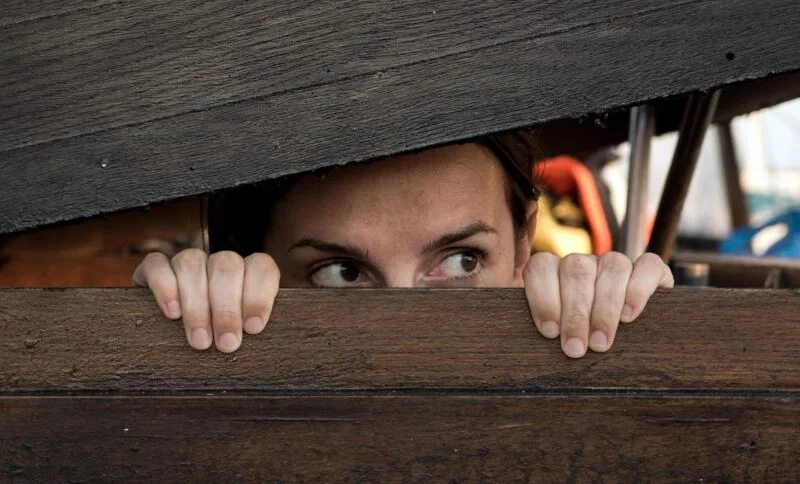My beginnings formed my relationship with money.
I grew up with a single mom. She consistently worked three minimum-wage jobs at a time to make ends meet. My childhood was the definition of scarcity. We didn’t have a car. We lived in government-subsidized housing. My lunches consisted of grilled ‘government’ cheese and Kool-aid. Many of my friends from the neighborhood were in the same situation. One friend in particular had a dad in prison the entire time we were kids, and later in life, he himself would be in the same situation. My first cigarette was in fourth grade. Most of the adults in my life didn’t graduate from high school, including both of my parents. I knew from an early age, however, that my current circumstances would never define my potential. I knew that somehow I wanted something different. I’d struggle along the way, making many mistakes, including losing several tens of thousands of dollars, but would always have a vision for moving my life forward, despite my mistakes thanks to a few role models I had.
My first source of income was at a local K-Mart store while in high school, making minimum wage, $4.25 an hour. I was very motivated and found ways to be helpful in all of the departments throughout the store. I relieved people for their breaks, filled in for department supervisors when they were sick and in doing so, proved to my management that I could handle various aspects of the store. Over a short time, I would find myself progressively moving from “cart boy” to cashier supervisor, eventually overseeing the work of some of my high school classmates’ mothers (awkward!).
First career, first house, marriage. Starting my road to financial independence.
Soon, I would graduate from high school after having been the Treasurer of the National Honor Society. Then, 3.5 years later I’d graduate from Michigan State University. I paid my own way through college, working full-time as the Store Manager at a pharmacy chain. Working 40+ hours while taking 15+ credit hours was not fun, but I was on a mission. I did still make time to have the “college experience.” I graduated from college with $5k in debt, a far cry from the heavy debt taken on by students today. I met my wife during my senior year, and we were married two years later. She was 19. I was 23. She had a very similar upbringing which was the glue that brought us together.
My first career out of college was in the auto industry. During my time there, I took advantage of excellent tuition reimbursement benefits and completed an MBA on the company’s dime. I climbed the ladder through my 20’s. My wife and I soon purchased our first home. It was a foreclosure. It was a shithole! The feeling of owning our own home for the first time made the shithole feel like a palace. It was in this house, before YouTube was all the rage, that we learned how to DIY. We were fearless as we tore down walls, ripped out flooring and gutted bathrooms. After a few years, we sold this house at a profit and made the decision to build our next home.
Then, there was a pothole. The great recession!
This was where things started to take a turn for the worse. It was during a housing market boom right ahead of the sub-prime mortgage crisis. Although we had no kids at the time, we built a nearly 3,000 square foot 4 bedroom, 3 bath home…clearly to stroke my ego and prove to the world that the government cheese-eating kid from subsidized housing had “arrived.” Being in the auto industry, I was also cycling through new cars every 6 months to keep up with my peers.
Then, in 2008, the bottom dropped out. There were massive layoffs at my company. The housing market in the Detroit area cut home prices in half nearly overnight. Everything felt like it was out of my hands. Everything I had dreamed of having earlier in life was slipping away. My career, my house, my security. I ended up taking a voluntary buyout package because I didn’t know if the company could even make payroll the next day if I stayed. They were running the lights in the office at half power and controlling the amount of printing we did in an effort to save money. I had a known and an unknown facing me. I knew I could walk away with cash today, or I could be laid off with nothing tomorrow.
We were always savers, but there was no way to sustain the house and overall lifestyle we had built on just one income. I didn’t have a job lined up, and there were no companies hiring in the Detroit area. It was a job desert. I was at the end of my rope. I was so distraught, feeling like I had just been through a divorce, but with a company. It was a dark moment in my life.
A rude awakening. A lesson in the importance of financial independence.
This was my wake-up call. It was during these months of being unemployed that I realized I had surrendered my life to somebody else. I had grown too dependent on a company, my employer, to provide for me and guarantee my future. I had blindly grown beholden to “the man.” I had allowed a company to work me 60+ hours a week, around the clock and a rat race mentality to take over. And I thought the material things, like a big house would make it all worth it, but it didn’t. My relationship with money was formed at a young age on the foundation of security that money could bring. But, I had let consumerism and lifestyle creep consume me, which caused me to abandon my core beliefs about money and the scarcity mindset I had developed at a young age. The decision to acquire this house was the worst decision in my life, but there was also a silver lining in it, because I learned something valuable.
Starting over. A new leg of my financial independence journey.
I spent two months pounding the pavement. I treated my job search like a full-time job, sometimes not showering and staying in my PJs all day for the sake of productivity. My search for jobs in Detroit quickly turned into a national search. Since we had no kids at the time, we decided to roll the dice and make it an adventure and land wherever we landed.
In the end, we relocated to Durham, North Carolina. I accepted a Marketing position in the health insurance industry during a time of massive growth driven by the recently signed Affordable Care Act (aka Obamacare). When we finally sold our house in Michigan (at a huge loss), we had to show up at the closing with money (the same money I received in the buyout) to pay our way out of it. The market dropped so much that we owed more than the house was worth at the time. We could have easily done a short sale (getting the bank to agree to accept a lower amount), but it would have negatively impacted our credit, leaving us unable to buy or possibly rent moving forward. Even though this left us with very little outside of the savings we had built up in retirement accounts, we ended up paying our way out of it. When we got to Durham, we rented a small, cheap 1-bedroom apartment for 6 months while we figured out if this new city and the job were going to be a good fit for us. Six months in, I was enjoying my new career, and my wife was settling in, so we decided to buy a place while things were still at the bottom of the market.
We found a townhome for sale in a nice community. The owner was an investor who owned several properties. The asking price was a third of the cost of our previous home, and it was also a third of the size. We were aggressive and offered 20% below asking – final offer, no counters. The seller scoffed, but in the end, accepted our offer. This new home meant a 7 MINUTE COMMUTE to work, a very low cost of living and a no maintenance lifestyle for us. We were smack dab between the mountains and the ocean. We effectively cut our living expenses in half, while I had a bump in salary over my prior position and were now on a much better path to build the life we wanted. Some people in our lives assumed I had taken a massive pay cut because of how we were living, but we were secretly laughing our way to the bank.
Rewinding lifestyle creep to accelerate savings and quality of life.
I didn’t realize at the time that I was part of the FIRE (Financial Independence Retire Early) movement before FIRE was even a thing. This change in our lifestyle enabled me to max out the annual contribution to my 401k for the first time ever, max out IRAs for me and my wife, and I also discovered the power of an HSA (Health Savings Account) and maxed that out as well. This was at the bottom of the stock market as well, so everything was on sale.
The best part of all of this? The freedom from the shackles of our house enabled us to spend quality time together, taking frequent trips, exploring the beaches and mountains of North Carolina and the surrounding area, instead of weekends spent lawn mowing, landscaping and cleaning. This new-found freedom also enabled me to take on a different mindset with my employer. This was the first time I began sharing my honest opinions with leadership at my company, even if unpopular, because my fear of ‘losing everything’ was diminished by the confidence built with my financial independence. Because of our comfortable situation, my wife also was able to take the risk of opening a business which would become wildly successful.
A new sense of importance for financial independence. Our first child.
In 2011, we had our first child, a daughter. My wife was able to stay home to care for her. This was something we both really wanted, and it was made possible by our newly-created lifestyle. As Lucy approached one year old, my wife and I started to feel the draw of home. The draw of family. The draw of Michigan. It takes a village, right? My company had a large presence in Michigan and offered an opportunity for career growth at the right time (talk about timing!). As much as we loved North Carolina and all that it offered, especially the mild winters, we made a move back to Michigan.
When we returned to Michigan in 2012, we found a very cheap one-bedroom apartment to lease for 6 months (one of the only places that would accept 2 dogs), while we hunted for the right home. In the apartment, we’d soon discover we had a woman who dressed in several costumes upstairs, a chain smoker on oxygen next door and a guy who literally ran laps in his apartment upstairs. It was a very ‘eclectic’ place. But, my daughter learned to walk in this place, and I will never forget that moment. While I worked, my wife spent her days house searching. Our criteria was a good community, no long commutes (meaning more quality time with family) and good schools. We ended up finding a house, just before the market began heating up, and we jumped on it.
A final step. A paid off, mortgage-free house.
Earlier this year, we paid off our forever home completely, many years before the mortgage period. I never in my wildest dreams imagined I’d be mortgage free at age 42. There are many schools of thought on whether to pay a house off or keep the debt and invest the money [check out my blog on “How and Why We Became Mortgage Free”]. Our decision was a psychological one – the need for a sense of security. We are completely debt free, own our cars (we buy used) and have college accounts for our kids. We have enough saved to retire today if we wanted to, at ages 43 and 39. The feeling of financial freedom is liberating and refreshing. I don’t say these things to boast, but to illustrate that this is possible if you want it. You just have to re-frame your concept of what makes you happy and what you value. You have to set goals and understand that you are worth something. Your time is worth something. You don’t even need a college degree if it isn’t something you value. You need confidence, tenacity and grit. We started with nothing, and now we are here, with freedom to now choose how we spend our time.
Giving back is part of the financial independence journey
Today, being in a position to give back, we became licensed foster parents. My wife and I, both with similar complicated upbringings, wanted to give a child like us an opportunity. My wife has a strong gift for early childhood development, and this is her calling. We also want to show our children the struggle that exists in the world outside of our bubble in the hopes that they seek to help others in need too. This act of giving back would not have been possible if we didn’t find this new financially-independent lifestyle. Our lives could have easily been consumed by debt and servicing the debt vs. serving others and making that a priority. We wouldn’t have felt the freedom to explore our passions, because our noses would have been stuck to the grind of financing our lifestyle.
What is your financial independence journey?
I’ve shared my story, part of it anyway, to illustrate that financial independence is possible, even if you’re currently in a hole and feel like you’ll never get out. If you have the desire to break free from the shackles of your 9-5, if debt is weighing you down, if you’re arguing with your partner about money constantly, you can do something about it. Good for Your Wealth can help.
With the Good for Your Wealth blog, I will share helpful money, retirement, savings and investment tips with a little storytelling along the way. There are no get-rich-quick schemes about what I’ve done. I will not share the latest “stock tips.” My goal is to help you on your path to financial independence in a way that is clear, simple and steady.
Cheers.


